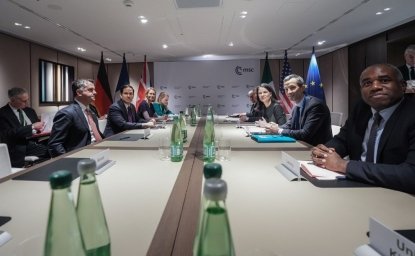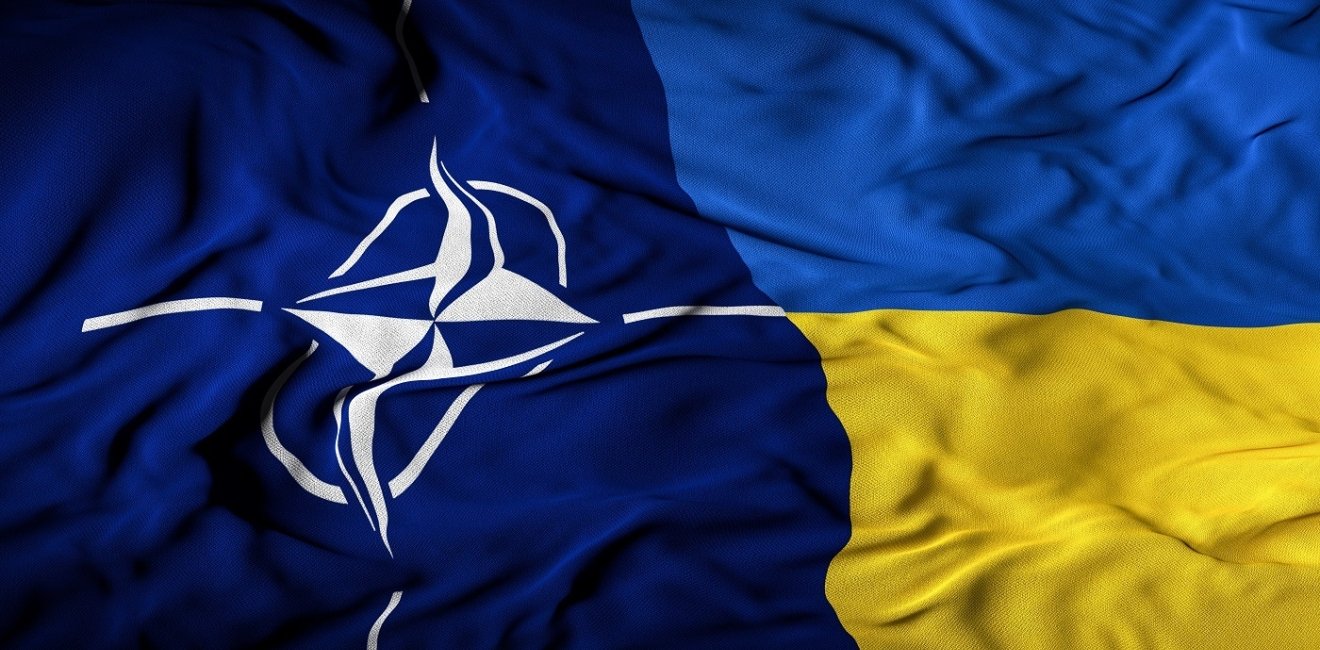BY MARK TEMNYCKY
The Russian invasion of Ukraine has changed the world order. Over the past eleven weeks, the international community has stood firmly behind Ukraine. It has supplied Ukraine with billions of dollars in humanitarian, medical, and financial assistance and millions in defense aid. Moreover, the international community has implemented stiff penalties on Russia to try to force this country to stop its unprovoked war.
The invasion has also changed the security regime in Europe. Russia’s war has united NATO’s members and strengthened the alliance. It has also led to some unthinkable events. For generations, Finland and Sweden have remained neutral on potential membership in the world’s greatest democratic and military organization. The Russian invasion, however, has changed the “whole security landscape” in Europe. In a shocking turn of events, these two Nordic states are now seriously considering joining NATO, a possibility welcomed by the West.
“We know that [Finland and Sweden] can easily join [NATO] if they decide to apply,” NATO Secretary General Jens Stoltenberg said at a NATO meeting last month. Other Western leaders have shared similar sentiments.
Finland and Sweden have now begun to prepare their formal membership requests, which could be officially submitted later this month. But as NATO anxiously awaits their requests, the Alliance should not overlook the aspirations of Georgia and Ukraine.
Politicians, government officials, and policy experts have often voiced their concerns about potential NATO enlargement by the admission of Georgia and Ukraine. They have argued that Georgia and Ukraine have similar histories to Russia’s, that inviting these states into the Alliance would put the organization on Russia’s doorstep, and that Georgia and Ukraine lack the military capability to join the Alliance. The issue of corruption in Georgia and Ukraine and the illegal Russian occupation of territory in these two states are also frequently trotted out as reasons to be cautious. But there are many counterarguments to these points. While debating Georgian and Ukrainian membership in NATO, critics should also consider the membership process of the already admitted Baltic states, as well as the aspiring Finland and Sweden.
First, critics argue that Georgia and Ukraine have similar histories to Russia’s. Inviting these states into NATO, they say, would unsettle Russia as it would cause a rift in the historic landscape. The Baltic states and Finland, however, also share a significant part of their history with Russia. During World War II, Estonia, Latvia, and Lithuania were invaded and occupied by the Soviet Union. Finland was also invaded by the Soviets during the war. Despite these events, the Baltic states have been part of NATO since 2004, and Finland’s forthcoming application has been warmly received by the international community.
Second, critics state that inviting Georgia and Ukraine into NATO would make the situation in Eastern Europe uneasy as their membership would put the organization on Russia’s doorstep. But several NATO members already currently border Russia. For example, Norway was an inaugural member of the Alliance in 1949, and this state shares a border with Russia. The Baltic states also share borders with Russia, yet they were permitted to join the Alliance in 2004.
Third, some critics have argued that Georgia and Ukraine do not have the military capabilities to support NATO membership. Recent events, however, demonstrate that these two countries have strong defense forces as they have been able to thwart Russian advances. Over several years, Georgia and Ukraine have participated in NATO training exercises so that their militaries can become interoperable with the West’s. Because of their persistence and willingness to advance, these two countries are now recognized as NATO Enhanced Opportunities Partners. They are two of only six non-NATO members to hold this status. (Finland and Sweden also have this status.) Finally, according to the World Bank, Georgia and Ukraine spend around 2 percent or more of their respective GDP on defense. The same cannot be said for Norway, Finland, or Sweden.
As for the corruption arguments, critics state that Georgia and Ukraine are moving too slowly in reforming their governments, as shown by the annual Transparency International Corruption Index. These countries, however, have been working with the EU for several years to implement crucial anti-corruption reforms so that they can join this organization. Implementing these reforms would help them reach Western standards of democracy and governance. While progress has been slow, the work of these two countries has led the EU to grant them visa-free travel as a way of rewarding them for their anti-corruption efforts. Georgia and Ukraine still have a lot of work to do, but if these countries are given EU candidate status, it could steer them to true democracy. (In other words, if they are serious about joining the EU, they would need to continue reforming their governments.) EU candidate status would also have a significant impact on their NATO aspirations. NATO, like the EU, is a democratic alliance that requires candidates to encourage and support democratic reform. Georgia and Ukraine will have to work for this potential membership, but it could be achieved if they are serious about their aspirations. NATO Membership Action Plans (MAPs) for these countries could guide their anti-corruption efforts, with objectives that are clearly defined. These goals would be carefully outlined in the MAPs, and progress toward meeting them would be easily measurable.
Finally, critics claim that NATO is reluctant to admit Georgia and Ukraine because Russia illegally occupies territory in these two states. Though Russia was the instigator of the conflict in both these states, some of the more traditional NATO members may not be willing to look past this important detail. There are also genuine concerns that granting Georgia and Ukraine NATO membership could force the organization into the conflicts these states have with Russia. But this may not necessarily be the case. Georgia and Ukraine have demonstrated that they can hold Russia’s aggressive behavior at bay. Georgia has contained Russia to Abkhazia and South Ossetia since the Russian invasion in 2008. Meanwhile, as Russia continues its second invasion of Ukraine, the Russians have not made many territorial advances outside the previously occupied Crimea and Donbas in 2014. Moreover, according to the Study on NATO Enlargement, countries with territorial disputes “must settle [these] disputes by peaceful means in accordance with OSCE principles [but] resolution of such disputes would be a factor [rather than the factor] in determining whether to invite a state to join the Alliance.” In other words, resolving contested territory is only one of the considerations for NATO membership, but it is not the defining factor for joining the Alliance.
If Georgia and Ukraine continued to pursue their anti-corruption initiatives, and if they focus on interoperability with the West’s military forces, then perhaps a compromise could be reached with the current NATO members on how to address Russian aggression and the illegal Russian occupation of territories in Georgia and Ukraine.
Georgia and Ukraine still have a long way to go to achieve full interoperability with NATO forces. They will need to implement numerous anti-corruption reforms before they reach the democratic standards of their Western neighbors. Nonetheless, their NATO aspirations should not be ignored. Their involvement in numerous annual NATO training exercises, their significant defense spending, their willingness to implement crucial defense and government reforms, and their desire for a more secure and democratic Europe show that they are committed to joining NATO. Therefore, as Finland and Sweden prepare their official NATO membership requests, the Western organization should not forget about Georgia and Ukraine.
The opinions expressed in this article are those solely of the authors and do not reflect the views of the Kennan Institute.
Author
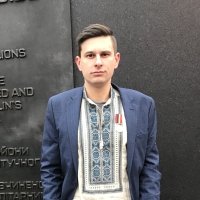

Kennan Institute
After more than 50 years as a vital part of the Wilson Center legacy, the Kennan Institute has become an independent think tank. You can find the current website for the Kennan Institute at kennaninstitute.org. Please look for future announcements about partnership activities between the Wilson Center and the Kennan Institute at Wilson Center Press Room. The Kennan Institute is the premier US center for advanced research on Eurasia and the oldest and largest regional program at the Woodrow Wilson International Center for Scholars. The Kennan Institute is committed to improving American understanding of Russia, Ukraine, Central Asia, the South Caucasus, and the surrounding region through research and exchange. Read more

Explore More
Browse Insights & Analysis
Trump Speaks with Putin in Effort to End Russia-Ukraine War
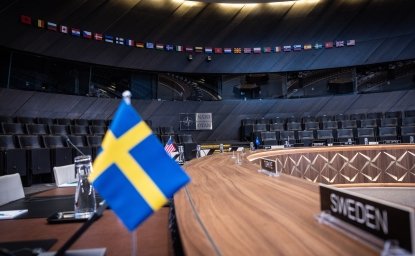
From Partner to Ally: Sweden’s First Year in NATO
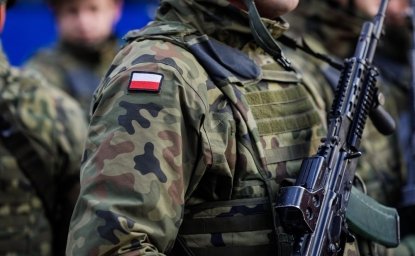
“Security, Europe!”: Poland's Rise as NATO's Defense Spending Leader
